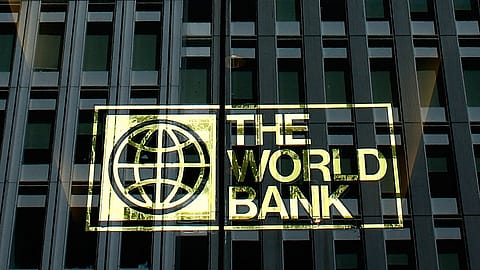India's growth may benefit from implementation of reform agenda: World Bank
Addressing the aftermath of financial sector distress could unlock significant growth, says World Bank.

India's potential growth could benefit from accelerated implementation of an already ambitious reform agenda, the World Bank says in its 'Falling Long-Term Growth Prospects' report.
Addressing the aftermath of financial sector distress could unlock significant growth, the World Bank says, adding that India has a less developed financial system than many of its peers, with a heavy state presence. To improve the sector's efficiency and depth, reforms could be undertaken to further rationalise the role of public sector banks, ensure a level playing field in the banking sector, and promote the development of capital markets, the World Bank says.
On infrastructure, the reforms suggested by the Task Force on the National Infrastructure Pipeline should be implemented, including improving project preparation processes, enhancing the capacity and participation of the private sector, improving contract enforcement and dispute resolution, and improving sources of financing, it adds.
In South Asia, the steepest slowdown in investment growth over the two decades to 2021 occurred in India, according to the World Bank.
"In India, structural bottlenecks, including unreliable power, poor road and rail networks, and arduous administrative requirements on business, have been barriers to investment over the past decade, along with banking sector weaknesses that have constrained investment finance. The recent government investment drive recognizes the need to accelerate infrastructure development and unblock impediments to private sector-led growth," the global financial institution says.
Investment growth in India slowed from an annual average of 10.5% in 2000-10 to 5.7% in 2011-21. In FY14, private investment, which accounted for nine-tenths of total investment, stagnated as global financial conditions tightened rapidly and capital outflows accelerated. Subsequent years saw continued muted investment growth relative to the preceding decade.
The Covid-19 pandemic led to a 10.4% contraction in fixed investment in India in FY21, but a robust recovery followed, assisted by the government's investment drive, the World Bank says.
Recommended Stories
In FY22, investment rebounded by 15.8%, making the shortfall from the pre-pandemic trend among the smallest in South Asia. Public investment in the 2022-23 Budget is expected to expand by one-third, and there is also an incentive programme to boost private investment. "By boosting public investment during years of private sector weakness (2013-16, 2020) the government played an important countercyclical role," the World Bank says.
On the global economy, the World Bank said its "speed limit"—the maximum long-term rate at which it can grow without sparking inflation—is set to slump to a three-decade low by 2030. An ambitious policy push is needed to boost productivity and the labor supply, ramp up investment and trade, and harness the potential of the services sector, the report says.